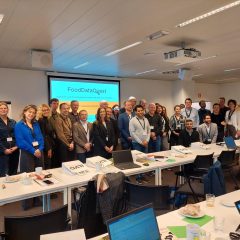Research project Demonstration of intelligent decision support for pandemic crisis prediction and management withinand across European borders

General introduction
The Horizon2020 research project STAMINA responds to the European concern for public health with a focus on pandemics. The aim is to develop tools that can support the (crisis) policy around an outbreak of a pandemic. The technical tools can be used for both prediction and management of pandemics at different levels: national, regional, inside and outside the EU borders. STAMINA is intended to be useful for the (potential) pandemic pathogens influenza, covid-19 and West Nile virus, as well as for food pathogens such as antibiotic resistant E. coli (ESBL). The project brings together 37 international research partners that collaborate on tool development and testing.
Research approach
The tool sets we develop throughout STAMINA have 4 separate application areas: (i) we aim at 'real-time web and social media analytics' that can monitor social confidence and potential outbreaks, (ii) we build predictive modeling of the pandemic outbreak and of the impact, which are linked to decision tools around the optimal implementation of mitigation strategies, (iii) we create an early warning system and a scenario generation tool for training purposes and (iv) we develop portable point-of-care test devices and smart wearables for first line screening.
ILVO is responsible for the (technical) testing and valorization of point-of-care tests (PCR and CRISPR-CAS technology) for rapid on-site detection of emerging diseases.
Relevance/Valorization
The management of pandemic crises remains a challenge, due to the involvement of many actors, the different legal, administrative, professional and political cultures and the lack of structures for good cross-border crisis management. The researchers expect the intelligent STAMINA tool sets to provide evidence-based decision support to authorities and implementers at national and regional level. Those involved in the crisis management of a pandemic can respond to the "known-unknown" with the toolsets. A tool set will be accompanied by clear guidelines on effective implementation of risk communication. There is also info on best practices in cross-organizational preparedness and response. In other words, the toolsets promote awareness, monitoring and detection of European pandemics in the future.








